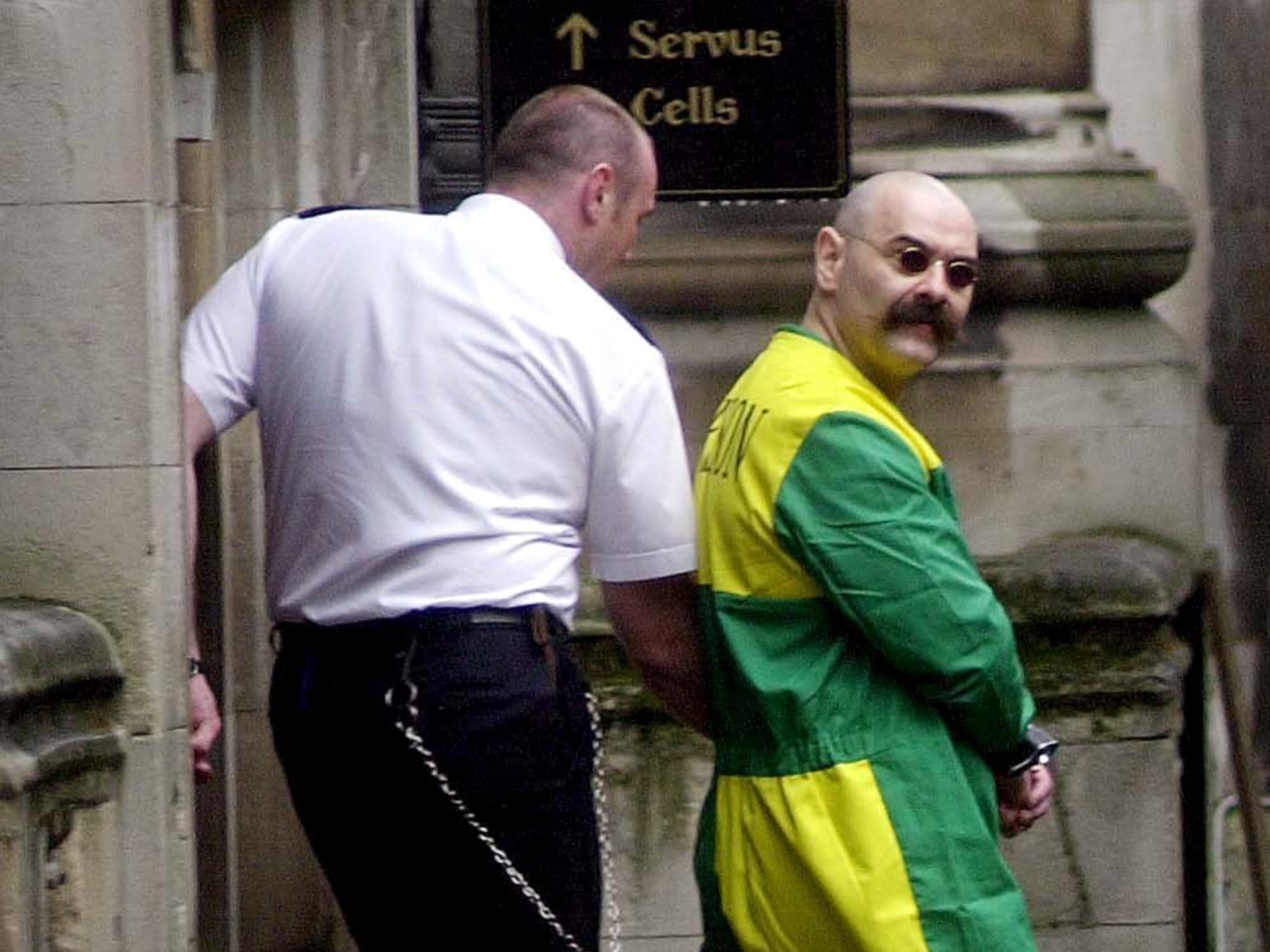Charles Bronson: Britain's most notorious prisoner charged with assault
Accused of carrying out attack on man in HMP Wakefield

Charles Bronson, the man often referred to as Britain’s most notorious prisoner, will stand trial for assaulting a man in prison.
The 65-year-old, was born Michael Peterson and but changed his name by deed poll to Charles Salvador, is accused carrying out an attack on a man in HMP Wakefield in January.
Bronson reportedly refused to appear via video-link, writing to a friend that he would prefer to attend court in person as he “likes the smell of a court room”. His trial date was set for 18 July.
Jailed for the first time in 1974 when he committed an armed robbery on a post office, he was initially sentenced to seven years behind bars.
But 44 years on and he is still incarcerated, having spent nearly 40 years in solitary confinement due to his behaviour inside prison.
Born Michael Gordon Peterson in Luton in 1952, he changed his named to Charles Bronson during a brief spell of freedom in which he took part in bare-knuckle fights – he recently changed his surname to Salvador in tribute to the Spanish painter, Dali. Bronson is a keen doodler.
Earlier this year he married Paula Salvador, who told The Independent that she was convinced he would get out of prison at some point.
She knows, she says, that she and her husband will be together and holding hands outside of prison boundaries at some point.
“I know that Charlie will get out,” she said. “I’ve not married a murderer, I’ve married a man that has been taken and hyped by the media to be a larger-than-life character when the reality is very different.
She added: “I find it very bizarre when I hear about women with husbands who won’t ever get out. I don’t understand that. Especially when they’re in America and on death row. You’re never, ever going to be together, you don’t even live in the same bloody country. It’s very sad. No matter how strong a connection I felt with someone I couldn’t go that far.”
Agencies contributed to this report
